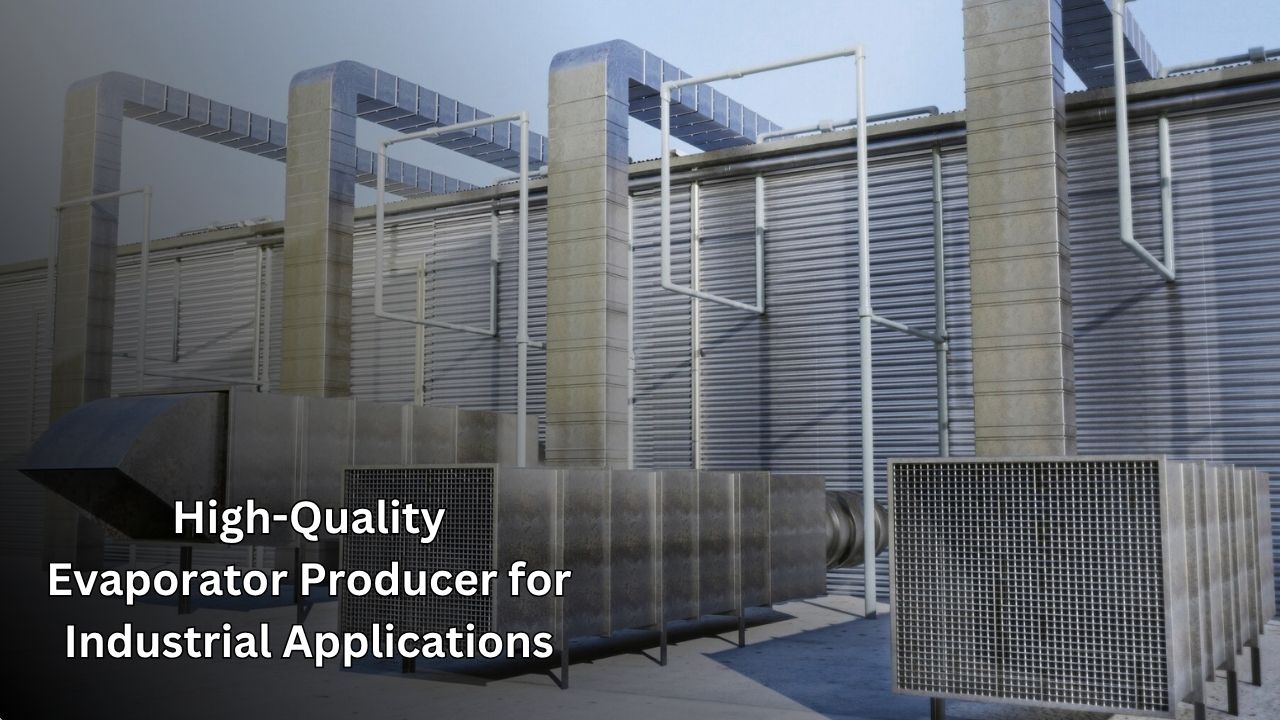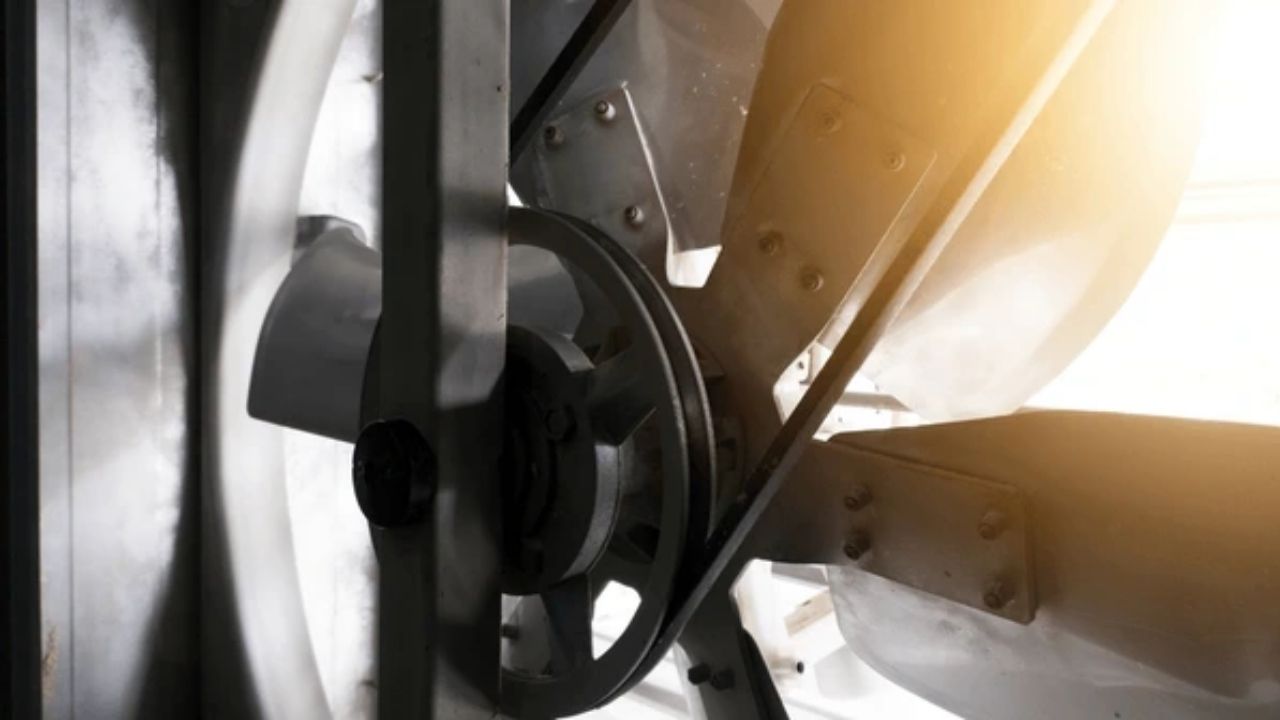Evaporator Producer
Evaporator Manufacturer: Leading Solutions in Cooling and Concentration Technologies
An evaporator manufacturer designs, produces, and distributes evaporators, which are critical components in cooling systems and liquid concentration processes. These manufacturers play a vital role in industries such as food and beverage, chemical, pharmaceutical, energy, and wastewater treatment, offering energy-efficient, environmentally friendly, and high-quality products. An evaporator manufacturer delivers customized evaporators tailored to industrial and commercial needs, ensuring process optimization. In this article, we will explore evaporator production processes, the range of products offered, technological innovations, quality standards, and sectoral applications in detail. Our goal is to provide comprehensive insights into cooling systems and evaporator manufacturing to help your business select the most suitable solutions.
What Does an Evaporator Manufacturer Do?
An evaporator manufacturer designs and produces devices that facilitate heat transfer by evaporating a liquid substance or concentrating liquids. Evaporators are used in refrigeration cycles or industrial concentration processes. Manufacturers create standard or customized evaporators based on customer requirements, select appropriate materials, and optimize systems for energy efficiency and durability. For instance, in a food processing plant, an evaporator manufacturer may provide hygienic stainless steel plate evaporators for fruit juice concentration, while for a chemical facility, they might supply corrosion-resistant titanium evaporators. The production process includes design, material procurement, assembly, testing, and quality control. Manufacturers adhere to international standards (ISO 9001, CE, ASHRAE) to compete in global markets.

Evaporator Production Processes
Evaporator manufacturer companies follow a complex and precise process to produce high-quality evaporators. This process consists of the following key stages:
- Design and Engineering: Technical specifications are determined based on customer needs. Parameters such as heat transfer coefficient, material type, and system capacity are optimized through engineering calculations.
- Material Selection: High-quality materials like stainless steel, titanium, copper, or aluminum are chosen. For example, stainless steel is preferred for the food industry, while titanium is used for chemical processes.
- Production and Assembly: Evaporator components (plates, tubes, fans) are manufactured with precision machinery and assembled. Automation systems enhance production accuracy.
- Quality Testing: Produced evaporators undergo tests for leak-tightness, pressure resistance, heat transfer performance, and energy efficiency.
- Surface Treatments: Coatings or nanocoatings may be applied to enhance corrosion resistance.
- Packaging and Distribution: Evaporators are packaged for safe transport and delivered to customers.
- After-Sales Support: Manufacturers provide installation, maintenance, and technical support services to ensure customer satisfaction.
These processes ensure that evaporator manufacturer companies deliver high-quality and durable products. For example, global leaders like Alfa Laval excel in plate evaporator production.
Types of Evaporators and Production Features
An evaporator manufacturer produces various evaporator types tailored to different industry needs. Below are the most common evaporator types and key production considerations:
- Plate Evaporators: Compact and highly efficient, these are used in food, pharmaceutical, and HVAC systems. Production emphasizes stainless steel plates and precise welding techniques.
- Flash Evaporators: Ideal for liquid concentration in the food industry. Production focuses on materials with high pressure resistance and corrosion protection.
- Falling Film Evaporators: Designed for high-volume liquid concentration. Tubes are optimized to create a thin liquid film during production.
- Forced Air (Fan) Evaporators: Used in commercial refrigeration systems. Fan integration and airflow optimization are critical in production.
- Tubular Evaporators: Preferred in petrochemical and energy sectors. Copper or steel tubes are processed for high thermal conductivity.
- Multi-Effect Evaporators: Incorporate multiple evaporation stages for energy savings. Production prioritizes energy-efficient designs.
- Dry Expansion Evaporators: Produced for systems requiring precise temperature control. Sensor and valve integration is carefully implemented during production.
This diversity enables evaporator manufacturer companies to offer industry-specific solutions. Factors such as material quality, heat transfer surface design, and system pressure determine evaporator performance.
Key Considerations When Choosing an Evaporator Manufacturer
Selecting the right evaporator manufacturer is crucial for your business’s efficiency and long-term success. A poor choice can lead to low performance, high energy costs, or maintenance issues. Here are the key criteria to consider when choosing a manufacturer:
- Experience and Expertise: The manufacturer’s industry experience and references demonstrate reliability. For example, Frigo Block is recognized globally for its 35 years of expertise.
- Product Quality: Evaporators should meet international standards (ISO, CE) and offer high efficiency and durability.
- Customization Capabilities: The manufacturer should provide tailored designs, such as hygienic evaporators for the food industry.
- Technological Innovation: Manufacturers offering IoT integration, nanocoatings, or energy-efficient designs should be prioritized.
- After-Sales Services: Installation, maintenance, and 24/7 technical support are essential for customer satisfaction.
- Competitive Pricing: Manufacturers that maintain quality while offering cost-effective solutions are advantageous for budget-conscious projects.
- Environmental Responsibility: Manufacturers using low-GWP refrigerants and recyclable materials support sustainability goals.
These criteria ensure your business partners with the most suitable evaporator manufacturer.
Technological Innovations in Evaporator Manufacturing
Evaporator manufacturer companies are driving industry advancements through technological innovations. Here are the latest trends in evaporator production:
- Energy Efficiency: Microchannel technology and multi-effect evaporators reduce energy consumption.
- Eco-Friendly Refrigerants: Low-GWP refrigerants like R1234yf and CO2 ensure compliance with environmental regulations.
- Smart Systems: IoT-based sensors enable remote monitoring and optimization of evaporator performance.
- Compact Designs: Plate and microchannel evaporators offer high efficiency in smaller footprints.
- Nanotechnology: Nanocoatings prevent corrosion and enhance heat transfer efficiency.
- Automation: AI-supported control systems improve production precision.
- Recycling: Recyclable materials and waste heat recovery promote sustainable production.
These innovations enhance the competitive edge of evaporator manufacturer companies in the global market. For instance, companies like Güntner are recognized for their energy-efficient evaporators.
Sectoral Applications of Evaporators
Cooling systems are widely used across various industries, with evaporators forming their core. Below are the primary application areas for evaporators:
- Food and Beverage: Evaporators are used for concentrating fruit juices, dairy products, and sugar syrups.
- Chemical: Evaporators play a critical role in the separation and concentration of chemical substances.
- Pharmaceutical: Used in drug production requiring precise temperature control.
- Energy: Evaporators are essential for waste heat recovery and geothermal energy production.
- Wastewater Treatment: Multi-effect evaporators are used for wastewater concentration.
- HVAC Systems: Fan-driven evaporators are common in air conditioning and refrigeration units.
- Marine: Evaporators prevent spoilage in cold chain transportation.
This wide range of applications requires evaporator manufacturer companies to develop industry-specific solutions.
Evaporator Maintenance and Efficiency
Evaporator systems can be affected by dust, dirt, corrosion, and scaling. Regular maintenance ensures system efficiency and reduces energy costs. Key maintenance steps include:
- Cleaning: Heat transfer surfaces should be cleaned regularly using chemical or mechanical methods.
- Corrosion Control: Protective coatings and material selection prevent corrosion.
- Refrigerant Monitoring: Proper refrigerant levels are critical for system performance.
- Sensor Calibration: Automated control systems should be regularly checked.
- Energy Analysis: Monitoring energy consumption helps implement efficiency-enhancing measures.
These steps ensure that evaporator systems operate efficiently and have a long service life.
Quality Standards in Evaporator Manufacturing
An evaporator manufacturer must ensure that its products comply with international quality standards. ISO 9001, CE, ASHRAE, and food safety standards (FDA, HACCP) guide the production process. Quality control is applied at every stage, from material selection to final testing. For example, stainless steel evaporators for the food industry are produced in compliance with hygienic standards.




